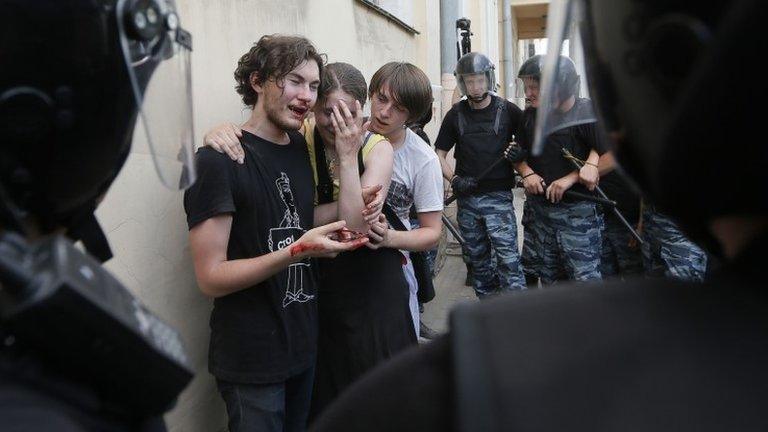Russia human rights: Chechnya court jails Memorial activist
- Published
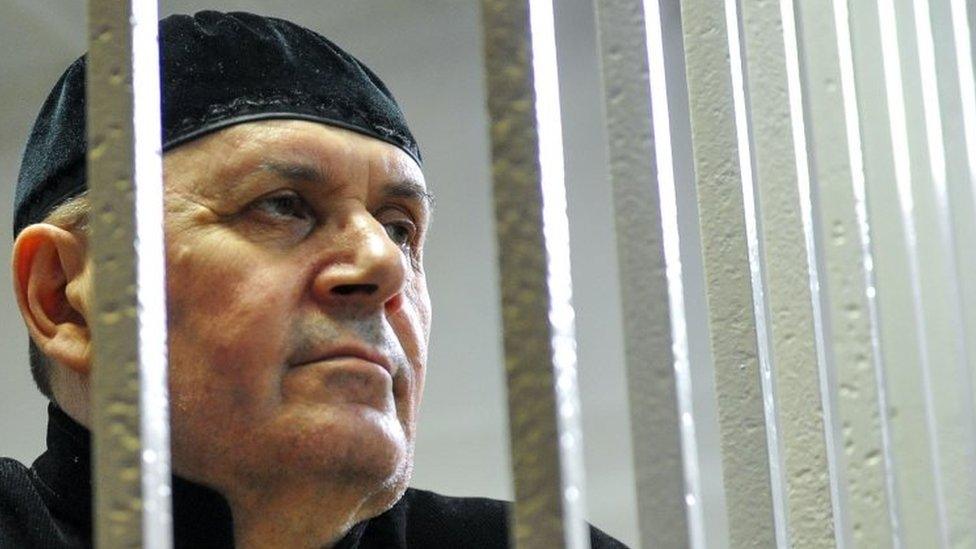
Oyub Titiev says his case was "fabricated"
A court in Russia's Chechnya republic has sentenced a prominent rights activist to four years in jail for possessing illegal drugs.
Oyub Titiev, who heads the regional branch of rights group Memorial, said the case was "politically motivated".
Amnesty International said the court verdict was "an affront", external to justice.
In recent years, Memorial has investigated alleged abuse by Chechen authorities, including kidnappings, torture and the persecution of gay men.
Chechen authorities have repeatedly denied the allegations.
Chechen leader Ramzan Kadyrov is questioned by Sarah Rainsford on the region's human rights record
Memorial is the last rights group to have a presence in the North Caucasus republic run by authoritarian leader Ramzan Kadyrov.
Oyub Titiev's predecessor at Memorial, Natalia Estemirova, was abducted and killed in 2009.
What did the court rule?
The court in the town of Shali, north-east of the capital Grozny, sentenced Titiev, aged 61, after the judge took nearly nine hours to read out her verdict.
The courtroom was packed with reporters and diplomats, as well as relatives and neighbours of the activist.
The judge said she had agreed with the demands of prosecutors, sentencing Titiev to four years in prison.
How did Titiev react?
The activist denied the charges, saying they were trumped up.
Titiev was arrested in January 2018 after police stopped his car to check documents.
The police said cannabis had been found in his car - he said the drugs had been planted.
After the verdict, Titiev said the authorities "fabricated the criminal case".
What about international reaction?
In a statement, Amnesty International said: "The four-year prison sentence slapped on Oyub Titiev is an affront to human rights, reason, and justice.
"By pronouncing him guilty, despite all the evidence to the contrary, the court has demonstrated how deeply flawed the Russian justice system is.
"The court has revealed itself to be little more than a tool that the regional authorities have used to silence one of the last human rights defenders working in Chechnya.
The Council of Europe Commissioner for Human Rights, Dunja Mijatovic, said: "The conviction of Oyub Titiev is but the latest example of the hostile and dangerous environment, external in which human rights defenders operate in the Chechen Republic."
- Published17 January 2018
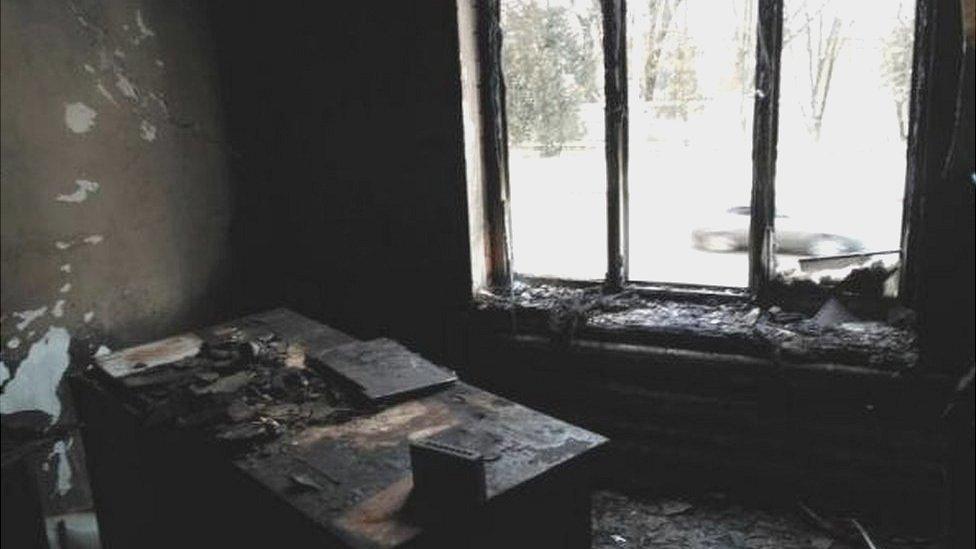
- Published29 January 2018
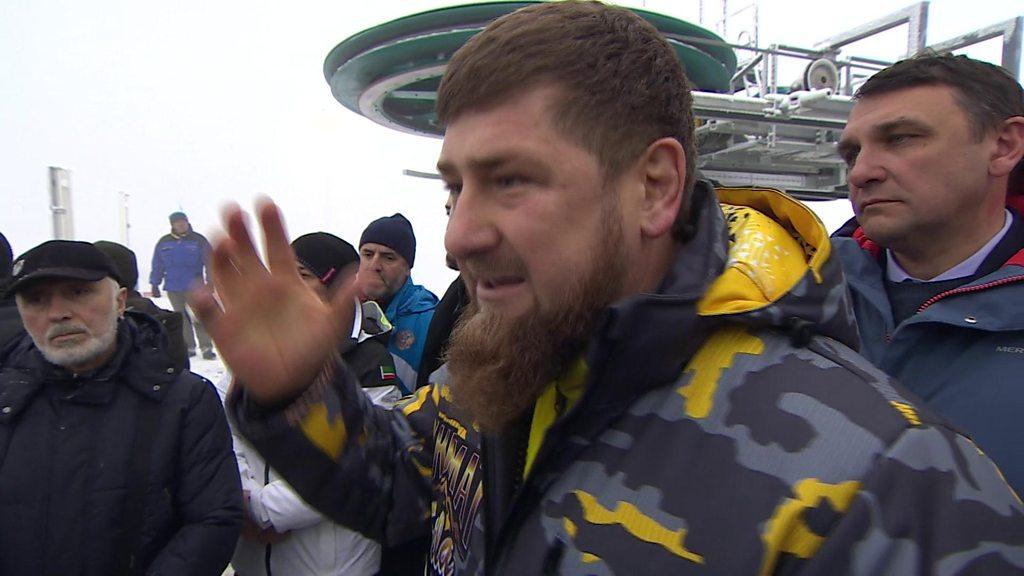
- Published17 October 2017
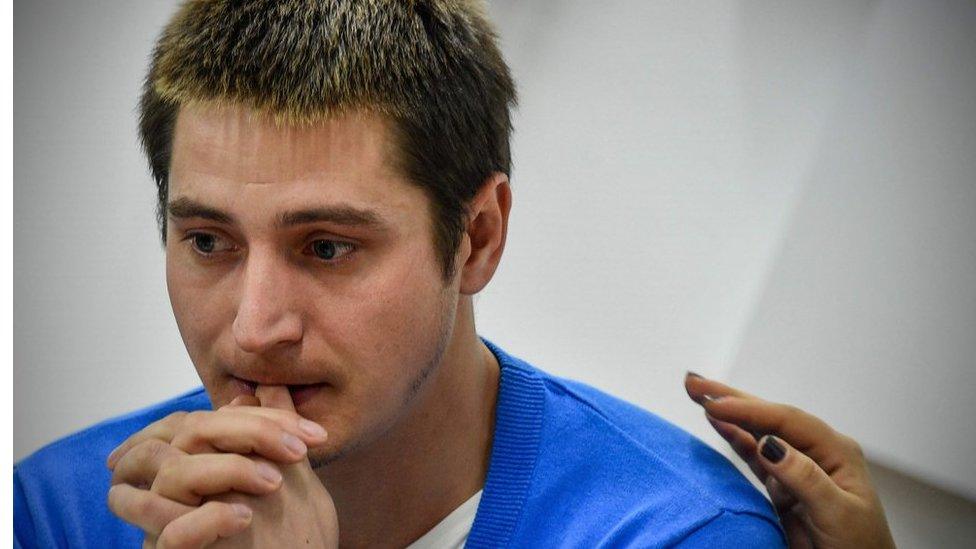
- Published16 May 2017
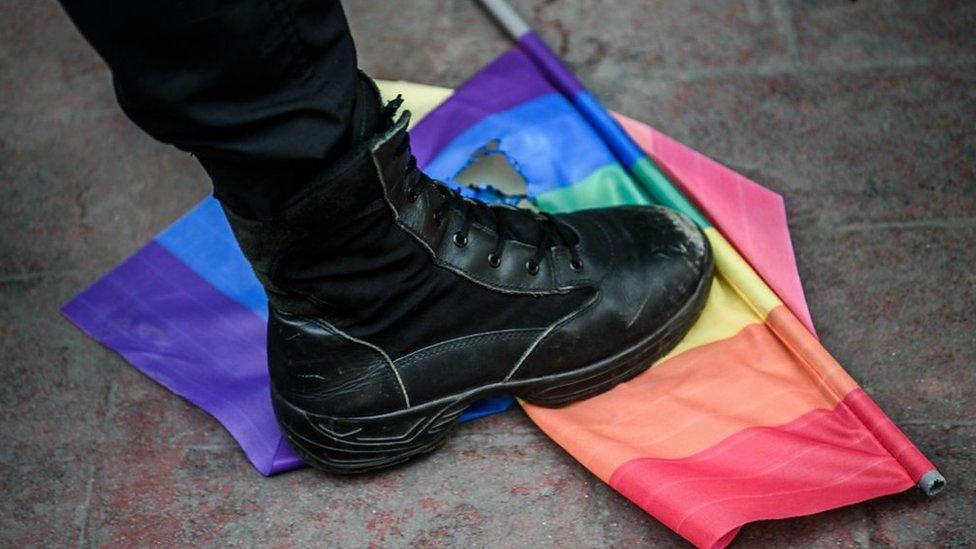
- Published7 September 2017
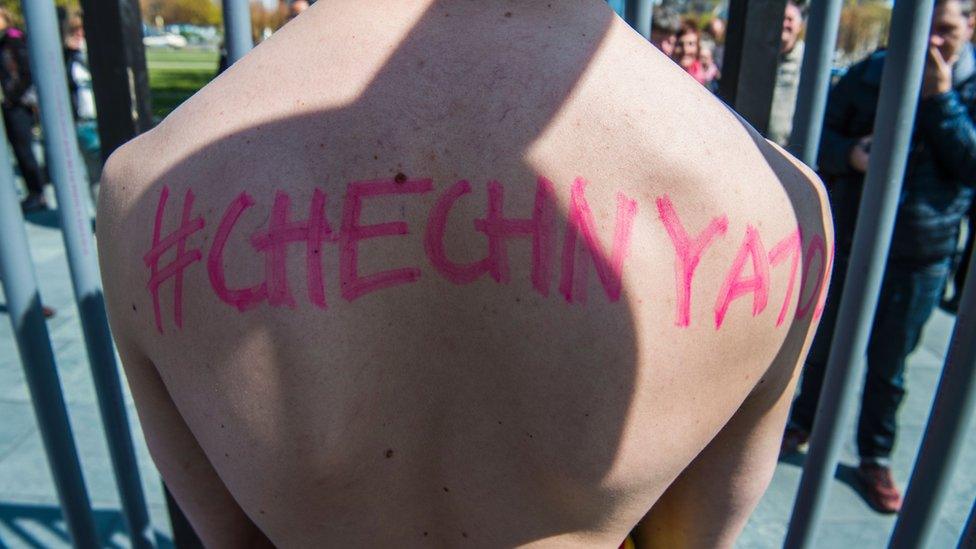
- Published21 April 2017
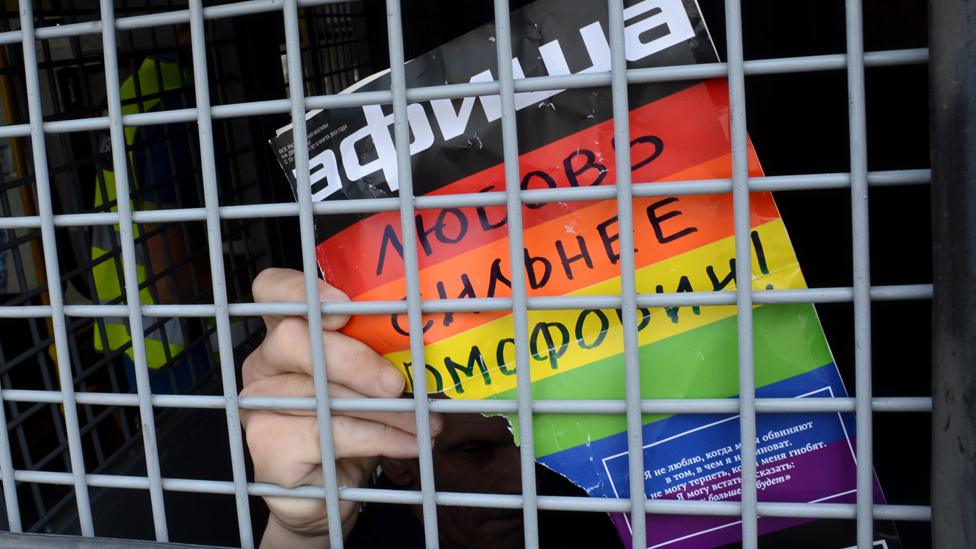
- Published28 August 2023
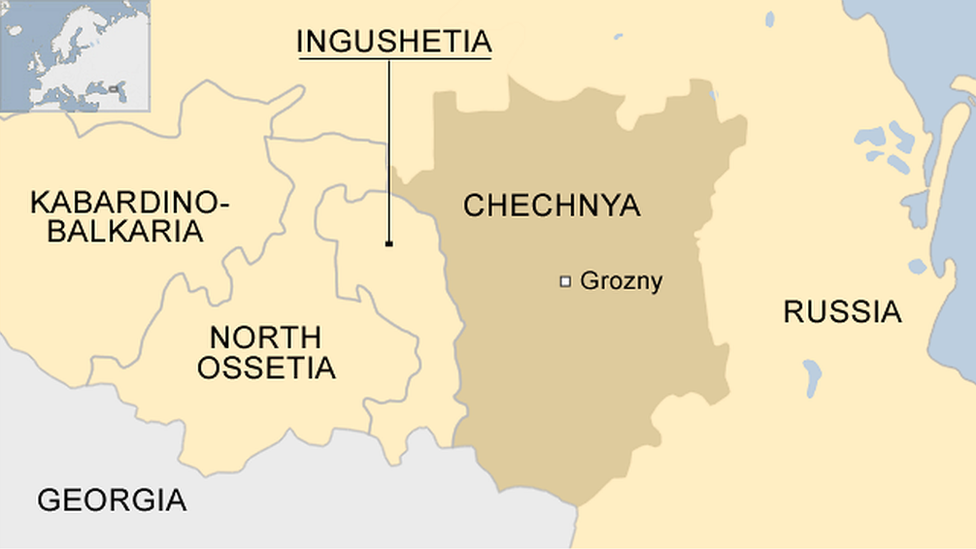
- Published16 December 2014

- Published11 April 2017

- Published21 May 2020
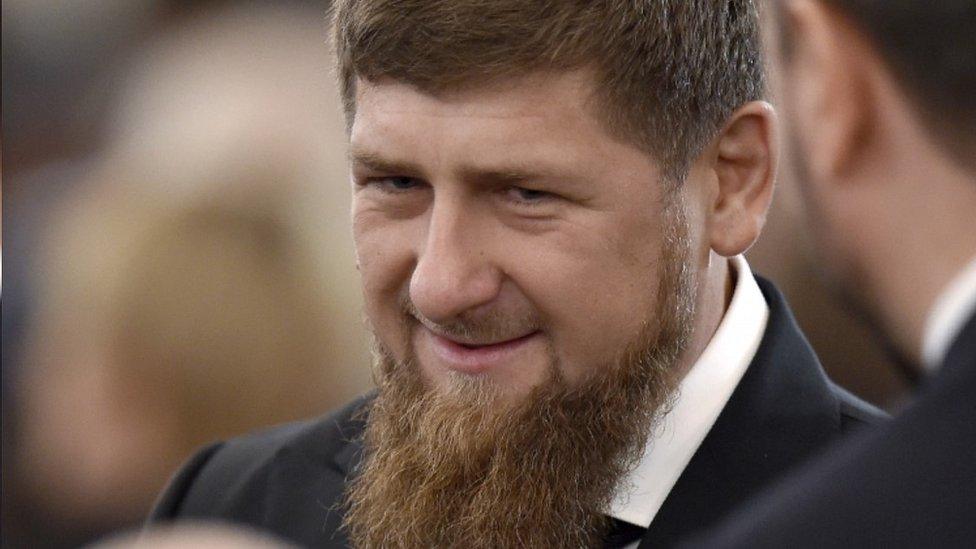
- Published20 January 2016

- Published29 April 2016

- Published13 August 2013
